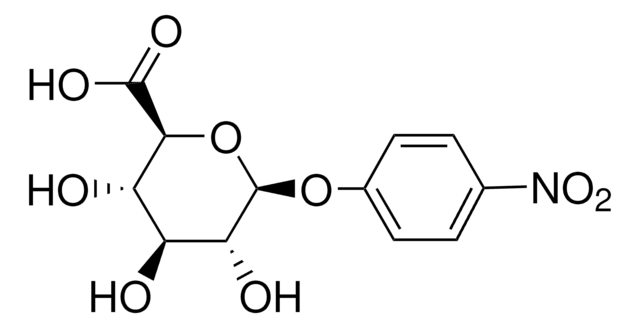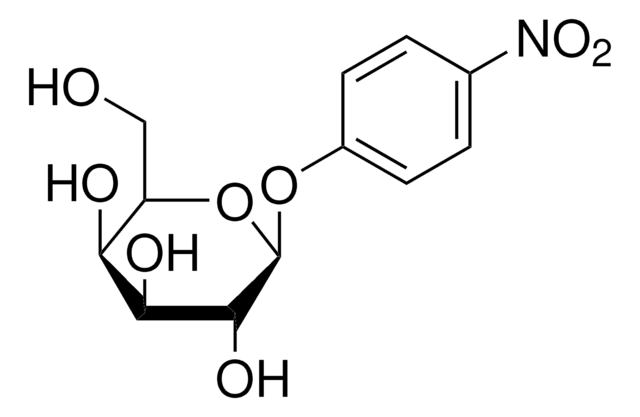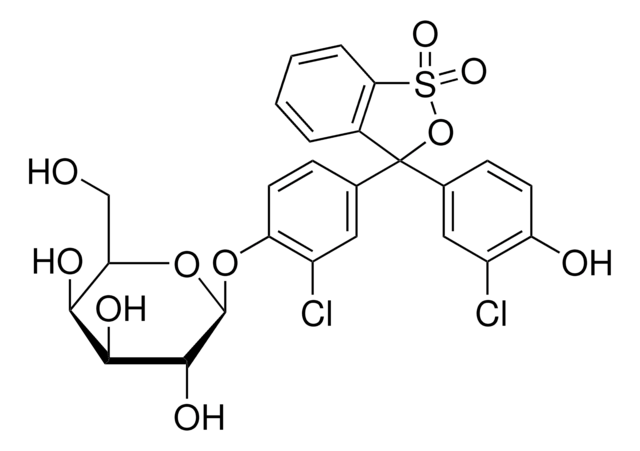A9545
4-Aminophenyl β-D-galactopyranoside
≥98% (TLC), β-galactosidase substrate
About This Item
Recommended Products
Quality Level
Assay
≥98% (TLC)
form
powder
optical activity
[α]/D -42.00 to -34.00°, c = 9.00-11.00 mg/mL in water
technique(s)
thin layer chromatography (TLC): suitable
color
white to yellow cast
solubility
water: 49.00-51.00 mg/mL, clear, colorless to yellow
storage temp.
−20°C
SMILES string
Nc1ccc(OC2OC(CO)C(O)C(O)C2O)cc1
InChI
1S/C12H17NO6/c13-6-1-3-7(4-2-6)18-12-11(17)10(16)9(15)8(5-14)19-12/h1-4,8-12,14-17H,5,13H2
InChI key
MIAKOEWBCMPCQR-UHFFFAOYSA-N
Looking for similar products? Visit Product Comparison Guide
Application
Other Notes
Storage Class Code
11 - Combustible Solids
WGK
WGK 3
Flash Point(F)
Not applicable
Flash Point(C)
Not applicable
Personal Protective Equipment
Certificates of Analysis (COA)
Search for Certificates of Analysis (COA) by entering the products Lot/Batch Number. Lot and Batch Numbers can be found on a product’s label following the words ‘Lot’ or ‘Batch’.
Already Own This Product?
Find documentation for the products that you have recently purchased in the Document Library.
Customers Also Viewed
Our team of scientists has experience in all areas of research including Life Science, Material Science, Chemical Synthesis, Chromatography, Analytical and many others.
Contact Technical Service












